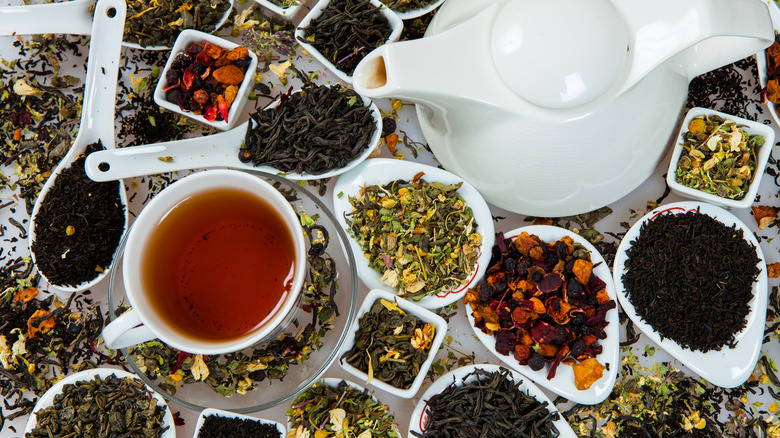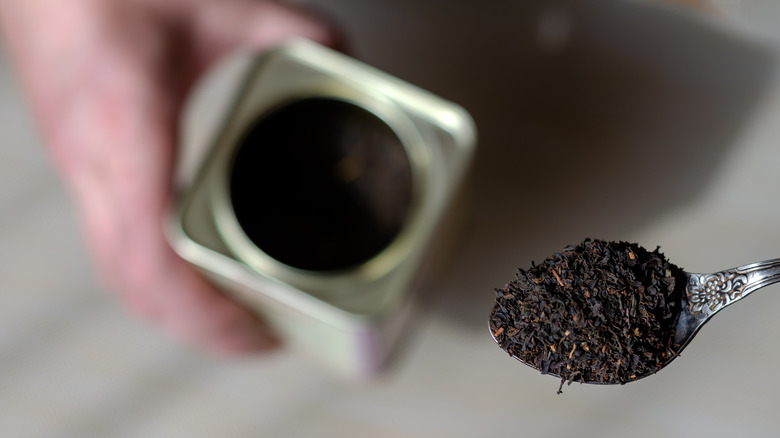You've Been Storing Tea Wrong This Whole Time
We all know those people (or are those people) that are always buying tea with good intentions to be someone who drinks tea every day but falls a little short of that goal, yet continues to buy more tea as though they are always on the brink of running out. If you are someone who does in fact, drink tea every day, good on you, and please teach us your ways.
There are tons of different ways to drink tea and each variety has a proper steeping process, from the temperature of the water to the time the leaves are supposed to steep, there are quite a few rules around tea. One rule that doesn't change, however, is how to properly store your tea. Spoiler alert — you've probably been doing it wrong this entire time. We know we have, and some of us are even veteran tea drinkers who consider themselves well-versed in all things tea.
Use airtight containers for your tea
We often tend to treat tea like we would flour or other dry pantry goods — something to be stuck in a cabinet for an undeterminable amount of time, and used when we want or need it occasionally. This is an incorrect school of thought, Brian Keating tells Food52. The author of "How to Make Tea: The Science Behind the Leaf" has some great advice on how to properly store tea to keep it fresh, rather than having it fall flat and lose a lot of its flavor. While certain teas have certain rules, generally speaking, "the most important thing you can do to extend the life of your loose leaf tea is to pack it in an airtight container and do your best to protect it from changes in temperature" (via Food52).
Keeping it in a cool, dark place with a controlled temperature (between 60 and 80 degrees Fahrenheit) is a must, too. While you can use any type of airtight container, Keating says "steel or ceramic container with a tight-fitting lid is best" for preserving your tea's freshness. If properly stored, most tea will have a shelf life of around two years, excluding matcha tea, which is very unstable and will only last about one year.

